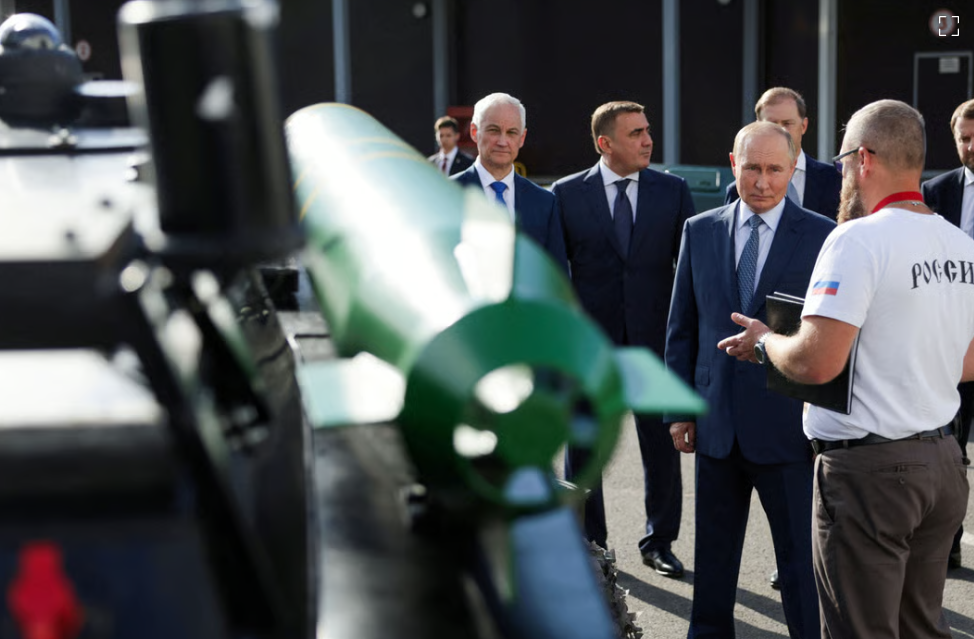Getting funds for reconstruction now, without waiting for the end of the war, is a possibility that could become a reality thanks to the confiscation of foreign Russian assets frozen due to the war and their transfer to Ukraine. This option is intended to serve as an alternative to reparations, which are typically negotiated after the end of a war based on a two- or multi-party international treaty and can take years or even decades to be paid.
"First of all, we don't want to wait until the end of the war because we don't know when it will end. Secondly, we insist that compensation should be given to the victims, and the state is just as much a victim as an individual or legal entity. That's why we proposed the concept of creating an International Compensation Mechanism," said Iryna Mudra, Deputy Minister of Justice of Ukraine, in a comment to RBC-Ukraine.
The most critical issue in this story is the funding of the compensation fund. Russia, specifically the frozen foreign assets of the Russian Central Bank, is expected to be the main "donor" to this fund. To confiscate Russian sovereign assets and transfer them to the compensation fund, countries need to make the necessary changes to their national legislation. To ensure that these changes comply with international law, a multilateral international agreement will be used as a "parachute" to facilitate these changes, creating a compensation commission and fund.
In the meantime, as the implementation of the Ukrainian compensation mechanism continues, work is underway globally on temporary solutions to obtain Russian funds for Ukraine's reconstruction.
One option is to use Russian assets frozen in the EU, which continue to generate income, as compensation for the losses inflicted on Ukraine by the war.
"In theory, these funds could be used until a compensation mechanism is created. Until then, of course, these profits could be used, and they could be directed to Ukraine," notes Iryna Mudra.
In this scenario, there are two possible approaches: reinvesting the profits from frozen Russian assets into Ukraine or imposing a special tax on these profits.
Belgium's government has already adopted the second option and transferred €92 million in tax revenues collected from frozen Russian assets to support Ukraine. Overall, it is expected that the frozen assets of the Russian Central Bank could yield approximately €3 billion in income.
Discussions with EU member states are still ongoing regarding the use of Russian assets.
Canada became the first country, apart from Ukraine, to develop and approve a national mechanism for compensating Russian assets. Canada has defined clear grounds for confiscating foreign property, including serious violations of international peace and security, as well as gross and systematic human rights violations committed in a foreign state. Canada plans to confiscate both state assets and private assets.
The procedure for the US Secretary of State Antony Blinken to make a decision regarding the transfer of confiscated assets of Russian oligarch Konstantin Malofeev to Ukraine is still ongoing.
"We are in discussions to make these funds the first tranche for the compensation fund. This would be a significant step that demonstrates the need for a fund and commission. This is our proposal, and it is currently being discussed in the United States," stated Iryna Mudra.
Furthermore, this year, a bipartisan bill was introduced in the United States regarding the use of Russian sovereign assets to aid Ukraine. This bill would allow for the confiscation of Russian assets in the US and initiate the creation of an international compensation mechanism for the damages inflicted on Ukraine by Russian aggression.
It's worth noting that in partner countries, assets belonging to sanctioned Russian businessmen and oligarchs are currently frozen, ranging from $30 to $100 billion. However, as Iryna Mudra, the Deputy Minister of Justice of Ukraine, points out, this is a more complex issue than confiscating a state's sovereign assets, as the protection of property rights is a sensitive matter for some jurisdictions





















